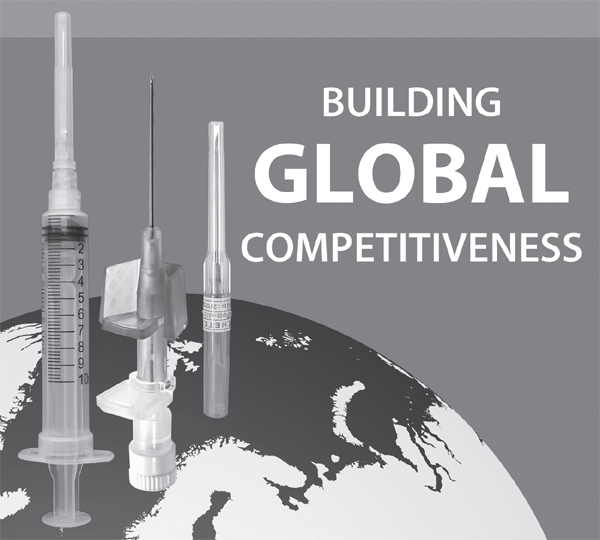|
Indian
Medical Device Industry : Government Initiatives For
Regulations, Safety & Competitiveness
|
The recent initiatives by
government through various departments is expected to make
the Indian Medical Device Manufacturing Sector grow faster
in the next five years. The initiatives include the Bill
to delineate Medical Devices from Drugs, removing Duty
Anomalies, Materiovigilance Programme to monitor Safety of
Medical Devices and many more. |
Major challenges faced by
Indian Medical Device Industry are lack of regulatory
structure, harmonized standards, accreditation and adverse
custom duties. Absence of any regulations for curbing
imports of poor quality or substandard quality medical
devices, lack of R&D capabilities with high reliance on
outsourcing technology, are some of the leading factors
affecting the competitiveness of Indian medical
consumables.

The decision of the Department
of Pharmaceuticals to come out with a draft National
Medical Device Policy, 2015 is the first government
initiative to give a proper direction to the growth of
this sector in the country. The main objective of the
policy is to set up National Medical Device Authority, an
autonomous body for regulating the manufacture and sales.
Such a national body should be able to strengthen the
domestic base of this sector, reduce dependence on import
and bring affordability and availability of these critical
products.
Preference to local
manufacturers in government purchases, institution of a
regulatory framework around self-certification, and
creation of a separate department for medical devices are
some of the other suggestions put forth by AIMED.
Another move initiated by the
health ministry is to come out with a Materio-Vigilance
Programme of India (MvPI) intended to ensure safety of
medical devices used in the country. There has been
several complaints of malfunctioning of medical devices
supplied by both Indian companies and MNCs from various
parts of the country. Adverse events of even critical
medical devices are not being monitored in the country.
The basic objective of MvPI is to collect safety data in a
systematic manner so that regulatory decisions and actions
on the use of medical devices could be taken on time by
the health authorities. These government initiatives
should play a key role in developing this industry and
ensure availability of quality medical devices at
reasonable prices to the patient community in the country.
One more development is
regarding inverted duty structure. It is expected that the
Department of Pharmaceuticals will shortly recommend to
rectify the inverted duty structure for the growing
medical devices sector. An inverted duty structure impacts
domestic industry adversely as manufacturers have to pay a
higher price for raw materials in terms of duty, while
imported finished products land at lower duty and cost
lesser. The duty structure will have to be modified. For
this, the Department of Industrial Policy and
Promotion(DIPP) and Department of Pharmaceuticals will
jointly finalise the recommendations.
Establishing an appropriate
regulatory framework for medical devices will enable
industry to better address the needs of Indian patients.
The industry is encouraged that the government has taken
cognizance of the fact that issues related to the
pharmaceuticals sector are different from that of medical
devices. The proposals for medical device parks,
autonomous regulatory authority, 100 percent FDI,
incentives for R&D, etc., will all foster the development
of the industry. More details on each of the initiative is
explained at length in the following press releases.
Page
1 :
2 :
3 |
